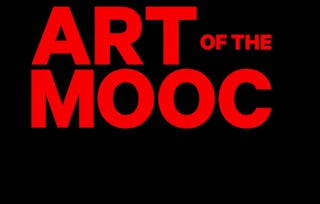Sports have become an ever-present reflection of American culture, and an important symbol of the divisions and alliances in our society. Sports and political change walk hand in hand in America. The way that athletes and institutions deal with questions of race, economic hardship, nationalism, and political ties have become central to the way that we understand ourselves and our society. And yet, there are those who would prefer their sports free of controversy and opinion. Dedicated athletes, coaches, and media personalities have pushed back against this refrain, demanding to be seen not just as entertainers but as fully formed humans with political opinions and experiences. Their struggles against injustice have changed the face of America and kicked off a reckoning within modern-day sports.

Activism in Sports and Culture
5 days left! Gain next-level skills with Coursera Plus for $199 (regularly $399). Save now.

(17 reviews)
Skills you'll gain
Details to know

Add to your LinkedIn profile
See how employees at top companies are mastering in-demand skills

There are 4 modules in this course
The history of activism and sports stretches to the beginnings of athletics in America, but perhaps the most iconic moment of protest was at the 1968 Olympics in Mexico City. In this module, you'll learn about the men who took a stand there, the historical context of the act, and how their country and the world responded.
What's included
7 videos2 readings2 assignments
Not all acts of protest are committed by people who consider themselves activists. In this module, you'll learn about NBA Hall of Fame honoree Spencer Haywood. At 19 he was the youngest American to win a gold medal at the 1968 Olympics. At 21, he brought a lawsuit against the NBA that would forever change the game.
What's included
7 videos9 readings2 assignments1 peer review
What role do journalists play in activism? Is it better to use an existing platform, or to build their own? In this module you'll witness the evolution of Jemele Hill from ESPN personality to outspoken activist.
What's included
1 video6 readings3 assignments
This module spans the career of Dr. Harry Edwards. As a sociologist and academic, Dr. Edwards created the field of sports sociology. As an activist, he has supported and counseled athletes in their acts of protest, from the Olympic Project for Human Rights to Colin Kaepernick's protest of the National Anthem.
What's included
1 video7 readings1 assignment1 peer review
Instructor

Offered by
Explore more from History
 Status: Preview
Status: PreviewUniversity of Colorado Boulder
 Status: Preview
Status: PreviewDuke University
 Status: Free Trial
Status: Free TrialDuke University
 Status: Free Trial
Status: Free TrialUniversity of Colorado Boulder
Why people choose Coursera for their career

Felipe M.

Jennifer J.

Larry W.

Chaitanya A.
Learner reviews
- 5 stars
88.23%
- 4 stars
11.76%
- 3 stars
0%
- 2 stars
0%
- 1 star
0%
Showing 3 of 17
Reviewed on Mar 31, 2021
Very educational and enjoyable experience. I would recommend it to anyone interested in sports, or activism (such as myself), as they would really appreciate the content of this course.
Reviewed on Oct 11, 2023
I enjoyed the course very much
Reviewed on Mar 21, 2021
This was a great course. I especially appreciate Professor Webber. Thanks for leading us, Sir! I hope there is more to come.
Frequently asked questions
To access the course materials, assignments and to earn a Certificate, you will need to purchase the Certificate experience when you enroll in a course. You can try a Free Trial instead, or apply for Financial Aid. The course may offer 'Full Course, No Certificate' instead. This option lets you see all course materials, submit required assessments, and get a final grade. This also means that you will not be able to purchase a Certificate experience.
When you purchase a Certificate you get access to all course materials, including graded assignments. Upon completing the course, your electronic Certificate will be added to your Accomplishments page - from there, you can print your Certificate or add it to your LinkedIn profile.
Yes. In select learning programs, you can apply for financial aid or a scholarship if you can’t afford the enrollment fee. If fin aid or scholarship is available for your learning program selection, you’ll find a link to apply on the description page.
More questions
Financial aid available,
¹ Some assignments in this course are AI-graded. For these assignments, your data will be used in accordance with Coursera's Privacy Notice.





